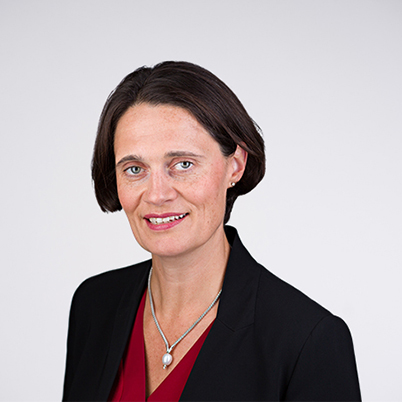
By Amy Barnes ,
Head of Climate & Sustainability Strategy
30/01/2024 · 4 minute read
In a snow-laden Davos, nearly 3,000 global leaders gathered for the World Economic Forum to talk about the most pressing global challenges and their solutions. Discussions were informed by a global backdrop of geopolitical instability, economic uncertainty, and the risks of electoral misinformation and disinformation — particularly pertinent in a year when close to 3 billion people are expected to cast votes in elections.
In this context, one fellow attendee suggested that climate appeared to be a somewhat overlooked topic this year — especially given that it ranked as the most acute long-term global risk in the WEF’s Global Risks Report 2024, created in collaboration with Marsh McLennan, which Al Gore in Davos called “the risk oversight committee for the world.” In fact, climate’s apparent lack of visibility on the agenda this year instead reflects the fact the climate debate has matured in recent years. The topic is less and less a single talking point, but instead is embedded in multiple discussions.
There was a significant amount of discussion about climate issues, but the topic is no longer so often discussed as an emerging debate to which we can apply one-size-fits-all solutions. These ranged in Davos from the intersection between climate change and health — both physical and mental — to artificial intelligence (AI)’s role in tackling climate issues. There was also a welcome commitment from leading mining and metal companies to support a nature-positive future, the kind of positive step we need more of to keep net-zero goals within reach.
Climate solutions are now being discussed at a more granular level, and that is a positive development. One such example was an interesting conversation with the head of procurement at a large multinational manufacturer, who made the case for much greater investment and training in procurement professionals. Decarbonizing supply and value chains is a critical piece of the energy transition puzzle, and much of the responsibility for leading this change will fall on procurement professionals. Having a large, skilled workforce with expertise in this topic will be critical, and insights from professionals like this are needed to turn climate talk into action. At Marsh, we’re focused on such solutions, too: Our investments in supply chain analysis, for example, are providing clients with insights into managing their entire supply chain ecosystem.
The risks and opportunities arising from advances in generative AI were another much-debated topic in Davos. The threat from disinformation is significant and growing, driven by advances in AI. The WEF’s Global Risks Report this year ranked misinformation and disinformation, driven by advances in AI, as the most acute global risk, and it was welcome to see the likes of the Sam Altman, CEO of OpenAI, and Klaus Schwab, founder of the World Economic Forum, in Davos discussing how it will reshape our collective future.
While we rightly discuss much about the potential risks of AI, it was positive to see examples last week of how this technology can be used for good. One such example was the launch of ClimateGPT at last week’s Forum. It is a generative AI tool which gathers accurate, authenticated climate data to try and answer the pressing questions on climate faster than humans alone can. How, for example, can we fully decarbonize the aluminium industry? We don’t currently have an answer, but generative AI tools may help us provide one.
Also notable in Davos was a growing focus on the human-centric impacts of climate change — mental and physical health — as well as assets. One company, for example, voiced distinct concern about our insufficient global healthcare infrastructure, both in general and within the context of climate change’s impact on the supply chain. Oliver Wyman, in collaboration with the World Economic Forum, released a report on the intersection of climate change and health with alarming findings: By 2050, climate change is predicted to cause an additional 14.5 million deaths, a dramatic increase in the spread of climate-related diseases, and place further strain on already overstretched healthcare systems.
From an economic perspective the loss of 2 billion healthy life years represents a challenge of a scale that leaders must not overlook. It is critical that we take decisive, strategic action to mitigate these consequences and apply global solutions to a global challenge. Cooperation must go beyond national interests to ensure that the most disadvantaged communities are not left to bear the worst human consequences from the impacts of climate change. Insurers can contribute by continuing to build out their risk assessment and modelling capabilities to better understand and mitigate the potential impacts of climate change on health.
Now that the climate debate has matured from an emerging risk issue into a present and pressing challenge, we must also continue to increase the focus on the human impacts of climate change in our communications around the topic. After attending Davos last year, I noticed “a sense that we need to look again at communications around climate change” to make sure messages about the urgency of action were landing effectively. Accurate and impactful communications are more important than ever in 2024. Doing so can make the impacts of climate change more powerfully understood and shape the debate to ensure that solutions do not leave the poorest and most underserved communities behind.
Davos was a reminder of the weight of the climate challenges we face in 2024 and onwards. It was also an opportunity to be buoyed by optimism: Solutions are ready if we are willing to take them.